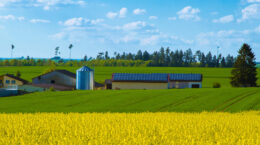History
Inorganic
chemicals are part of BASF's roots. In 1865, the Badische Anilin &
Sodafabrik was founded in Mannheim, Germany. The company was originally
intended to produce dyes as well as the necessary inorganic chemicals.
Facilities were built opposite the river bank in Ludwigshafen. Today, BASF
operates companies in more than 90 countries around the world.
Innovation
BASF,
we strive to find solutions to the global challenges we face on a daily basis.
This objective requires thinking outside the box and seeking integrated
results. Collaboration with each other is key. To achieve this goal, we
consistently join forces with experts from different sectors with diverse
backgrounds and a broad variety of know-how. We partner with our customers to
develop solutions.
Vertical Integration
Verbund
integration is at the core of our business philosophy and is one of BASF’s main
strengths.
In
our Verbund system, integrated processes consume less energy, minimize
emissions, produce higher product yields and conserve resources. BASF currently
operates six Verbund sites worldwide: two in North America, two in Europe and
two in Asia. BASF Inorganics products are primarily made at the Verbund site of
Ludwigshafen.
Global Presence
BASF's success story begins in Ludwigshafen on the Rhine in 1865. From here, it ships its products to nearly everywhere in the world. With about 380 production sites and six Verbund sites world-wide, BASF is the world's leading chemical company today. BASF is export-oriented from the beginning, selling its products worldwide. It operates a network of representatives, agencies and its own sales ofices around the globe.
BASF has been expanding into key markets with own production sites since the 1960s. Sales and production are followed by the establishment of research and development facilities abroad, commencing with agricultural research stations on four continents in the 1960s.
Sustainability
We create chemistry for a sustainable future.
This ambition also drives us at Inorganic Chemicals to constantly further develop our products and production processes. Together with you, we create and drive sustainable solutions.
You - our customers - can expect from BASF the consistent and innovative products you always received. At the same time, you increasingly demand for sustainable solutions which combine environmental and social responsibility with running a profitable business.
BASF has
been committed to the model of sustainability since 1994. Each of the three
dimensions of sustainability - economy, environment and society - has enjoyed a
much longer tradition on its own at BASF. Therefore, sustainability is an
intrinsic part of BASF's corporate purpose.
Responsible Care
Responsible Care (RC) is a voluntary initiative of the chemical industry. The objective: continuous improvement in the areas of environmental protection, health and safety (EHS).
Companies in the
chemical industry and associations in more than 50 countries support this
initiative. BASF committed to the principles of Responsible Care in 1992 and
has established binding Responsible Care objectives for itself. To do so, we
implemented a RC Management System as early as 2007, which applies to all
companies in the BASF Group as well as companies in which we hold a majority
share. BASF’s RC Management System comprises documents, which define
requirements and standards for the various steps along our value chain. These
documents apply throughout the BASF Group and covers all EHS topics.
Products
As the world’s leading chemical company, BASF meets the highest standards at any time – especially regarding purity and reliability. Technical information and safety data sheets can be found at the link below.
Markets and Industries
Discover here the many applications that rely on technical salts and alcoholates.









